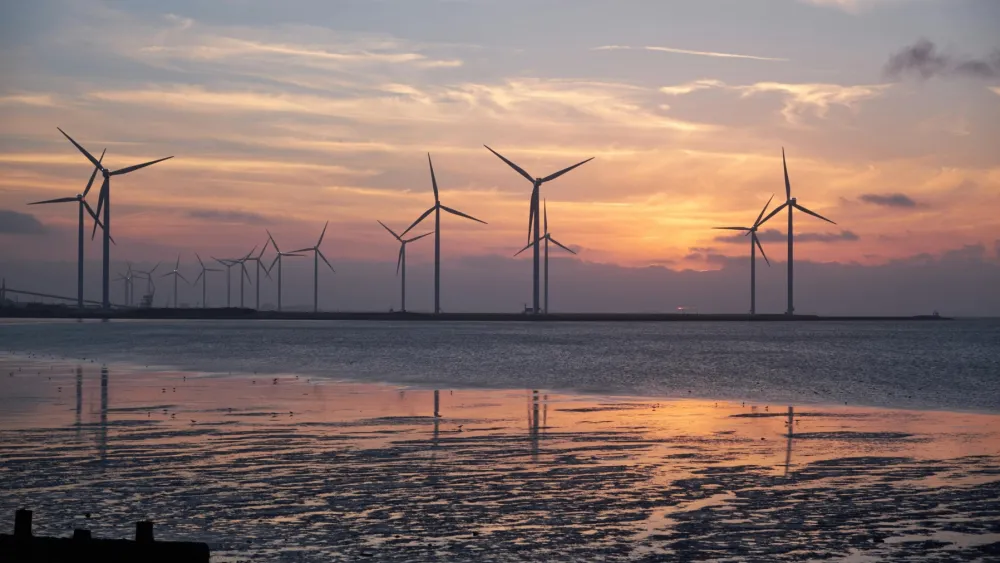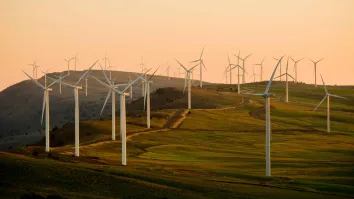ASEAN targets 100% renewable energy through regional approach
ASEAN Centre for Energy report outlines cross-border synergy efforts towards 100% renewable energy vision for a greener and unified future.
The Association of Southeast Asian Nations (ASEAN), a regional bloc of 10 countries, is taking a significant step towards a sustainable future, aiming to achieve 100% renewable energy across member states.
According to the Regional Approach Strategic Report by the ASEAN Centre for Energy (ACE), a more coordinated and robust collaboration among ASEAN countries will be pivotal in achieving this ambitious target.
“The report seeks to demonstrate the most progressive regional energy cooperation in decarbonising the ASEAN energy system, which also considers country-specific merits and challenges,” said Beni Suryadi, acting manager of the Sustainable Energy, Renewable Energy Department at ACE.
The joint report, developed by ACE, the ASEAN Renewable Energy Sector Network (ARISE), and the United Nations Economic and Social Commission for Asia and the Pacific (UNESCAP), focuses on establishing a comprehensive decarbonisation pathway for the ASEAN region.
It encompasses a SWOT analysis (Strengths, Weaknesses, Opportunities, and Threats) for each ASEAN member state to accelerate regional renewable energy development. Furthermore, it provides essential guidelines to facilitate renewable energy investments, enhance energy interconnectivity, and increase renewable energy emissions by the mid-century mark.
Speaking about the significance of a regional approach, Suryadi said: “This effort can only be made through a regional approach by integrating collaboration and the implementation of our collective strategies.”
ASEAN has set renewable energy targets at a regional level, aiming to achieve a 23% renewable energy share in total primary energy supply and a 35% renewable energy share in total capacity installed by 2025.
“Based on the country-level analysis on the LED status and policy, the report sheds light on the East Asian countries’ potential in contributing to the regional target and lays the foundation for the ASEAN Renewable Energy Roadmap, providing important insights for ASEAN policymakers,” Suryadi told Asian Power magazine.
Whilst recognising the diversity and unique circumstances of each member state, the report identifies several actions that the ASEAN countries can take together to address challenges and drive a unified energy transition.
The suggested actions include enhancing regional knowledge-sharing, promoting renewable energy investment for economic integration, reevaluating fossil fuels and traditional technologies, and focusing on climate financing.
Furthermore, capacity-building initiatives for policymakers and decision-makers play a crucial role in equipping them with informed knowledge about the importance of renewable energy and encouraging public energy-consciousness.
Suryadi acknowledged the challenges involved in harmonising the efforts of ten diverse countries but stressed the collective commitment of ASEAN countries toward the renewable energy transition.
“The ten countries in the ASEAN region currently have a common understanding that this issue cannot be solved individually; it requires synchronisation of grids, harmonisation of regulations, and resource sharing for successful implementation,” he said.
Whilst acknowledging the complexity of the task ahead, the consolidated report highlights the potential for a significant transformation in the region's energy landscape.
The collaborative efforts, backed by government support and private sector involvement, are crucial to achieving the ambitious goal of 100% renewable energy.
The ASEAN region is making bold strides towards a sustainable and greener future through its regional approach to renewable energy.
With dedicated leadership, cross-border cooperation, and technological advancements, ASEAN aims to set a benchmark for other regions to emulate in their journey towards a carbon-neutral future.
“Our united commitment to synchronising grids, harmonising regulations, and sharing resources forms the foundation for our resolute pursuit of a sustainable energy future,” Suryadi said.



















 Advertise
Advertise







Commentary
What a $635b investment push could mean for India’s refineries and thermal power plants